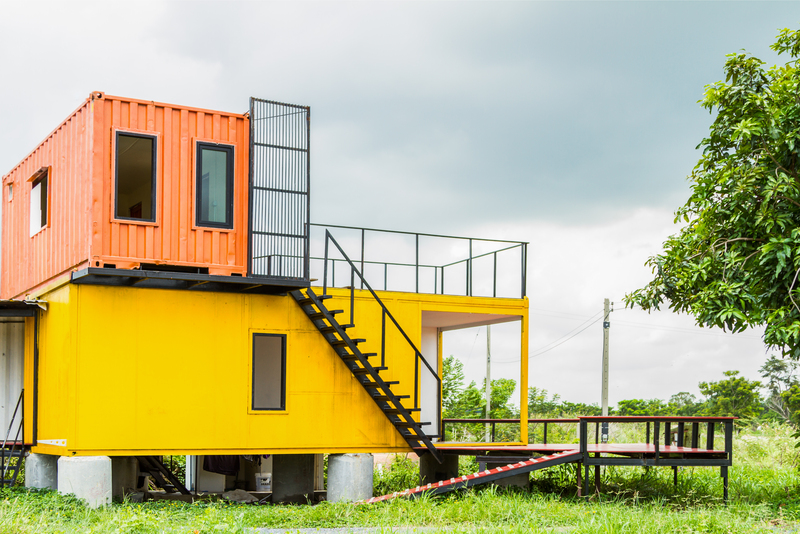Stretch Your Budget When Dealing With Bulky Waste Items
Dealing with bulky waste items can often feel overwhelming and expensive. Whether you're clearing out a house, renovating your living space, or simply replacing old furniture or appliances, it's essential to find cost-effective and eco-friendly ways to dispose of your unwanted large items. Stretching your budget when handling bulky waste is not only smart for your finances but also kind to the environment.

Understanding Bulky Waste Items
Before you start strategizing, it's important to define what constitutes bulky waste items. Typically, these are items that are too large for regular household waste collection--think sofas, mattresses, appliances, and garden debris. Managing your large-scale discard pile efficiently can save you money, time, and effort.
Why Proper Bulky Waste Management Matters
- Environmental impact: Large items in landfills take up significant space and risk releasing harmful substances.
- Cost savings: Proper disposal and recycling can cut down on hauling and tipping fees.
- Local regulations: Adhering to local waste collection guidelines prevents fines and legal issues.
Smart Strategies to Stretch Your Budget When Disposing of Bulky Waste
While getting rid of bulky objects can be a hassle, many cost-effective solutions will help you keep expenditures down and reduce environmental harm. Here's how to get the most value when you need to dispose of oversized items:
1. Plan Ahead for Efficient Bulky Waste Removal
One of the most effective ways to stretch your budget with bulky waste is to plan ahead. Create a comprehensive list of all items you want to discard. Group similar materials together and consider their disposal requirements. By consolidating your waste, you may only need to arrange one collection or trip to the dump, saving both money and resources.
2. Explore Free and Low-Cost Disposal Options
Many communities and municipalities offer free bulky item collection days for residents. Take advantage of these scheduled pickups to avoid hauling fees. Some local recycling centers or private companies may also accept certain items (like white goods or electronics) at a minimal charge or at no cost.
- Check your city's waste collection schedule.
- Look for community clean-up events or special collection programs.
- Ask about discounted days at local landfills or transfer stations.
3. Repurpose and Upcycle Instead of Disposing
Turning large waste items into something useful is both eco-friendly and budget-friendly. Repurposing old furniture or appliances saves on disposal fees and can even generate income if you sell your creations.
- Convert wooden crates or pallets into garden planters or storage.
- Upcycle old doors into tables or headboards.
- Use broken appliances for spare parts or creative projects.
4. Sell or Donate Usable Items
One person's trash is another person's treasure! By selling or donating bulky waste items in good condition, you prevent unnecessary landfill use and could earn money--or at least get a tax deduction for charitable giving.
- List items on online marketplaces like Craigslist, Facebook Marketplace, or eBay.
- Contact local charities or shelters to see if they need furniture or appliances.
- Arrange a garage sale to clear multiple items at once.
5. Pool Resources with Neighbors
If you and your neighbors all need to dispose of large items, consider renting a dumpster or arranging a bulk pickup together. Shared disposal can drastically reduce the per-person cost for waste removal.
- Organize a neighborhood bulky waste drive.
- Split costs for a shared dumpster or hauling service.
- Coordinate large item drop-offs with friends and family.
6. Rent or Borrow a Vehicle for Larger Loads
If your own vehicle isn't big enough to transport bulky waste, consider renting a truck for a half day or borrowing from a friend. This option is usually less expensive than paying for individual pickup services, especially if you have multiple items.
- Research community car share programs.
- Ask a neighbor or family member to help with transportation.
- Plan your route to hit multiple drop-off points, maximizing efficiency.
7. Compare Bulk Waste Removal Services
Professional removal services can be convenient but also pricey. Be sure to get multiple quotes before selecting a company. Look for local businesses with transparent pricing and eco-friendly disposal policies.
- Ask about volume-based pricing or seasonal discounts.
- Read reviews and request recommendations from previous customers.
- Inquire if they offer recycling or donation options as part of their service.
8. Recycle Whenever Possible
Many bulky waste items contain materials that can be recycled or safely disposed of. Check local recycling center guidelines for accepted items, such as metal appliances, electronics, or mattresses. Proper recycling often costs less than landfill disposal and helps conserve valuable resources.
- Look for "end-of-life" recycling programs for electronics and appliances.
- Contact mattress recyclers or metal scrap yards.
- Separate recyclable components from larger waste loads to minimize disposal fees.
Potential Hidden Costs and How to Avoid Them
To truly maximize your budget with bulky waste removal, it's vital to avoid common pitfalls that lead to unexpected costs. These can include illegal dumping fines, surprise landfill fees, or vehicle rental overages.
- Confirm local disposal regulations--never leave items on the curb without approval.
- Calculate all potential costs (transport, tipping, equipment rental) before starting.
- Schedule pickups in advance to avoid last-minute rush fees.
Careful planning and awareness can save significant amounts of money over the course of your project.
The Environmental Benefits of Smart Bulky Waste Disposal
*Reducing your disposal footprint doesn't just protect your wallet--it helps the earth, too.* When you responsibly manage bulky waste items, you reduce pressure on overfilled landfills, limit pollution, and support the reuse and recycling ecosystem.
- Eco-friendly disposal reduces greenhouse gas emissions from decomposing large items.
- Recycling materials like metal, wood, and foam creates new products and conservative resources.
- Donations keep usable goods in circulation, serving those in need.
Bulky Waste Budgeting: A Real-World Example
Let's say you're clearing out an old apartment and have to get rid of a sofa, a mattress, a refrigerator, and several bags of yard waste. By following the steps above, you can stretch your budget and manage disposal efficiently:
- Donate the sofa if it's in fair condition; local charities may even pick it up for free.
- Bring the mattress to a dedicated recycling center--some cities offer drop-off events at minimal cost.
- Check if your municipal waste service provides free appliance pick-up; if not, call a metal recycler who will haul away the refrigerator at no charge.
- Bag and bundle yard waste according to city rules, or compost when possible, avoiding landfill charges.
By combining donations, recycling, and municipal pick-ups, you may spend little to nothing on bulky waste disposal--maximizing your savings and minimizing your effort.

Frequently Asked Questions (FAQ) About Bulky Waste and Budget Disposal
What qualifies as a bulky waste item?
Most items too large for standard trash bins--including appliances, mattresses, furniture, carpets, and certain electronics--are considered bulky waste.
Can I leave bulky items on the curb?
*Only if your city or hauler permits it!* Always check local rules to avoid fines; some areas require scheduling special collection.
How can I get rid of bulky waste for free?
Many cities offer free bulky item days, donation pick-ups, or recycling events. Research your community programs for cost-free disposal.
Is landfill disposal ever a good option?
Landfills should be your last resort. First, attempt to donate, recycle, or repurpose--landfill tipping fees can be steep, and dumping harms the environment.
What about hazardous bulky waste?
Old appliances, electronics, and items with chemicals should be taken to certified hazardous waste facilities--never put these in the landfill!
Conclusion: Save Money--and the Planet--With Smart Bulky Waste Solutions
Dealing with bulky waste items doesn't have to break the bank. By planning ahead, embracing recycling and donation, and leveraging community resources, you can keep your costs low and support a cleaner environment. Next time you face a pile of large, unwanted items, these tips will help you stretch your budget and feel good about your disposal choices.
Remember: *every item you donate, recycle, or repurpose is one less waste in the landfill--and one more dollar in your pocket!*
- Organize your bulky waste in advance.
- Take advantage of free or reduced-cost local programs.
- Sell or give away usable items to maximize value.
- Pool resources with neighbors for shared savings.
- Recycle whenever possible and always follow regulations.
For more budget-friendly bulky waste disposal ideas or to find your local programs, check your municipal website or contact your neighborhood recycling center today!
